Speedify Review
Speedify’s name promises a lot, but does it live up to its claim? This Speedify review puts the VPN service to the test to see if it really is the fastest VPN. Read on for the results of our testing and the final verdict on Speedify.
Speedify has failed our internal encryption testing. We do not endorse the service.
Key Takeaways:
- Speedify is a unique VPN that places strong emphasis on speed, to the detriment of security.
- It uses proprietary channel bonding technology to send your data over multiple internet connections simultaneously, improving speed and stability.
- Its settings let you disable crucial VPN features, such as encryption and DNS leak protection, and it uses its own custom VPN protocol, which doesn’t bode well for security.
- Although it claims to keep zero logs, Speedify’s privacy policy clearly states that it records your IP addresses, login timestamps and the amount of data used, as well as identifying information about your device.
- Speedify failed our encryption testing and leaked our DNS requests, which means it’s not a secure VPN.
We rarely give insecure VPNs the time of day here at Cloudwards, yet some VPNs pique our interest with their bold claims and innovative features. Enter Speedify — a service that, in an unexpected move, puts speed before security to surprising effect. This Speedify review will dive deep into this unique free VPN to see if it’s worth your time.
Speedify puts heavy emphasis on being a VPN for livestreaming. Most of its features are tailored to create a stable and fast connection, and boy is it fast. It easily made our best fast VPN list, though its security lets it down and it fails to unblock most streaming services. Read on to see if Speedify is the right VPN for you, or check out our best VPN list to find a better product.
-
06/20/2022
We updated this review to reflect the latest changes in Speedify’s service, as well as the results of our automated speed testing.
-
08/01/2022
Updated the “speed” section of the review to include more information about our testing results.
-
09/26/2022
Updated review with confirmation from Speedify that all its servers are virtual servers.
-
11/21/2022
We added new information about Speedify’s security after a failed encryption test.
-
07/30/2024 Facts checked
Added information about Pair & Share, Starlink compatibility and recent minor updates.
Speedify Alternatives
- 1
- : PayPal, Credit card, Google Pay, JCB, UnionPay, Bitcoin, Ethereum, X-Coin
- : 10
- :
- :
- :
- :
Average speedDownload Speed88 MbpsUpload Speed9 MbpsLatency4 ms - 2
- : PayPal, Credit card, Google Pay, Amazon Pay
- : Unlimited
- :
- :
- :
- :
Average speedDownload Speed93 MbpsUpload Speed9 MbpsLatency3 ms - 3
- : PayPal, Credit card, Bitcoin, UnionPay, iDeal, Sofort, Giropay, Pixpay, Sepa Direct Debit
- : 8
- :
- :
- :
- :
Average speedDownload Speed91 MbpsUpload Speed9 MbpsLatency4 ms - 4
- : PayPal, Credit card
- : 10
- :
- :
- :
- :
- 5
- : PayPal, Credit card
- : 10
- :
- :
- :
- :
Strengths & Weaknesses
Pros:
- Blazing fast
- Can access Netflix
- Stabilize internet connection
Cons:
- Can’t reliably encrypt traffic
- Lacks security features
- Data encryption off switch
- Can’t access most streaming apps
- Collects too much data
- Closed source security protocol
Features
Speedify’s feature set is unique in a vast sea of VPNs. It certainly doesn’t lose any points for lack of innovation, though most of its features revolve around stripping back a layer of security in the name of speed.
Protect Your Privacy. Get Our Free VPN Guide Now!
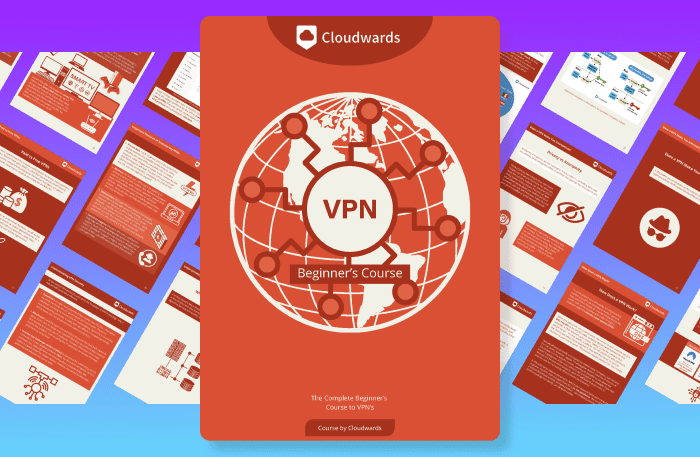
- Comprehend the essential role a VPN plays in safeguarding your digital life
- Gain a deep understanding of how VPNs function under the hood
- Develop the ability to distinguish fact from fiction in VPN promotions
Utilize Multiple Internet Connections With Channel Bonding Technology
Speedify lets you choose between three “channel bonding modes,” which can alter how fast and stable your connection is. This channel bonding technology is the crux of Speedify’s live streaming advertising and it should provide a reliable connection.
This assumes that you’re using multiple internet connections like WiFi, Ethernet and mobile data; otherwise, you won’t find it very useful. However, Speedify is capable of rolling just about any kind of internet into a bonded channel — even a Starlink satellite connection.
You can set Speedify’s channel bonding feature to “speed” mode, which will distribute your internet traffic equally over multiple internet connections. In “redundant” mode, it will send the same data packets over all available internet connections to ensure stability.
The default channel bonding mode is called “streaming.” Streaming mode switches between two main modes of operation. It uses multiple connections to their fullest for a faster connection speed, but it switches to using redundant traffic when it senses an unstable connection.
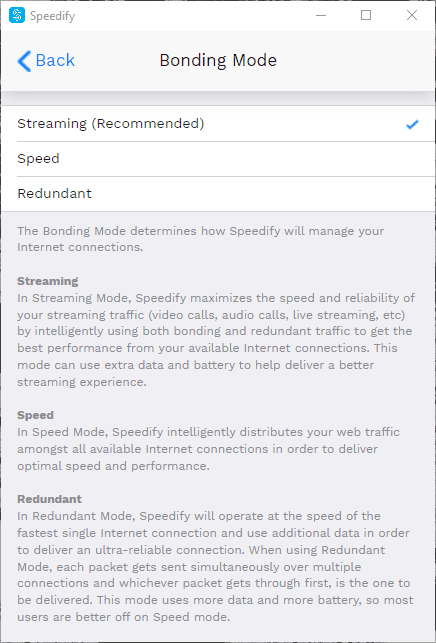
The most recent major update to Speedify came with the January 2024 introduction of Pair & Share, a feature which is essentially channel bonding for cellular data connections. Pair & Share can turn two or more phones into hotspots, which then use all each other’s connections simultaneously. Once two phones are paired, they can be used remotely, and unpaired at any time.
Other Speedify VPN Features
Speedify also has a “header compression” feature, which can help decrease the overall data used, and “jumbo MTU,” which helps reduce CPU load. These features are largely unique to Speedify and we haven’t seen their equivalent in another VPN, at least not in the form of a user-controlled toggle.
VPN users will be familiar with Speedify’s kill switch feature (a bog-standard VPN feature, despite the scary-sounding name), which shuts off your internet connection in the event the VPN connection drops. Unfortunately, it’s not available on macOS or Linux. Updates in 2023 made the kill switch function more consistently in our tests, with fewer false positives.
Furthermore, you can test your internet connection speeds using Speedify’s built-in speed test, as well as a livestream test that will tell you how fast your upload speeds will be when you livestream. There are also statistics that show you your top internet speeds and how much data you’ve encrypted with Speedify.
Speedify VPN’s Quirks
If you go rummaging through Speedify’s settings, you’ll run into a few oddities. Bafflingly, Speedify lets you turn encryption off if you want a faster connection, despite the fact that the very purpose of a VPN is to encrypt your traffic. However, this could be useful if you only need a different IP address for location spoofing.
Additionally, there are toggles for DNS leak protection and IP leak protection, which should always stay on, because protecting your IP address and DNS requests is a core feature of a VPN.
There is such a thing as giving a user too much freedom. If you tell someone unfamiliar with VPNs that “turning this feature off will make your internet faster,” they might rush to switch it off and end up endangering their privacy.
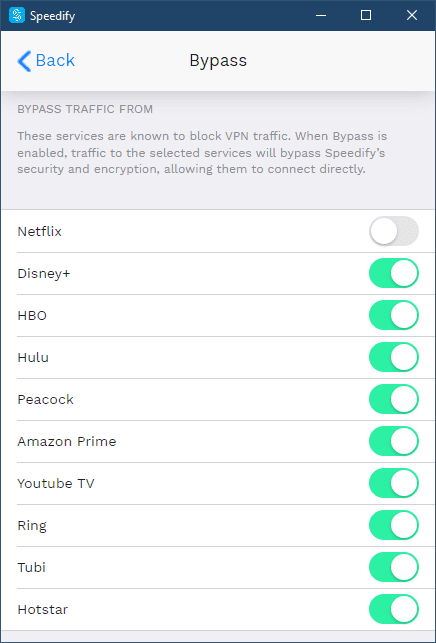
Speedify’s “bypass” option is another little quirk. Speedify isn’t particularly good at unblocking streaming services, so it lets you allow traffic from your chosen streaming sites to bypass the VPN tunnel.
We’re not quite sure what this accomplishes, besides saving you the embarrassment of facing an error page. Beware that most streaming services, apart from Netflix, are unsecured by default.
On mobile, the bypass option has a per-app version as well, letting you choose which apps can bypass the VPN. In other words, this is Speedify’s version of split tunneling.
Speedify Overview
| Features | |
|---|---|
| Payment methods | PayPal, Credit card |
| Accepts cryptocurrency | |
| Simultaneous connections | 5 |
| Supports split tunneling | |
| Unlimited bandwidth | |
| Free trial available | |
| Refund period | |
| Worldwide server amount | Unknown server count, 59 server locations across 47 countries |
| Desktop OSes | Windows, MacOS, Linux |
| Mobile OSes | Android, iOS |
| Browser extensions | |
| Can be installed on routers | |
| Can access Netflix US | |
| Can access BBC iPlayer | |
| Can access Hulu | |
| Can access Amazon Prime Video | |
| Encryption types | 128-AES, ChaCha |
| VPN protocols available | Speedify |
| Enabled at device startup | |
| Allows torrenting | |
| No-logging policy | |
| Passed DNS leak test | |
| Killswitch available | |
| Malware/ad blocker included | |
| Live Chat | |
| Email support | 24/7 |
| Phone support | |
| User forum | |
| Knowledgebase |
Pricing
Speedify is a free VPN service, and like most other free VPNs, it offers paid plans as well. Its paid plans aren’t the cheapest, and you can get a much better deal by going for a budget VPN option like Private Internet Access, or any other VPN on our best cheap VPN list. Let’s look at its free plan first, though.
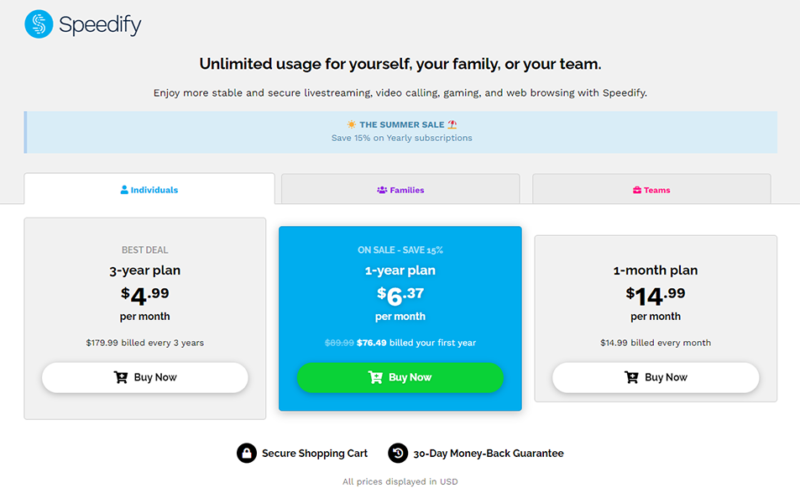
Speedify Free Plan
Speedify’s free version comes with a monthly data allowance of 2GB. Speedify’s app says that you get access to “premium locations” if you upgrade, but this is false. Free users get the same locations as paid ones, though particular servers within a location might be unavailable due to high load. Other than that, free users get all the features that paid users do, apart from the data cap.
You can connect up to five devices at once, which is the same as the paid version. There’s also the added privacy bonus of not having to input your email address or create an account. You can just download the app and go. We assume Speedify uses a device ID to keep track of how much data you’ve used for the month.
Unfortunately, the free plan isn’t available on Linux.
Speedify VPN Paid Plans
The paid version of Speedify offers unlimited data and three plans: Individuals, Families or Teams. You can subscribe for a month, a year or three years, with longer plans giving you larger discounts.
The Individuals plan costs $14.99 per month, which is more expensive than most premium VPNs. The yearly plan cuts that cost by half, and the three-year plan brings it down to $3 per month. In comparison, NordVPN charges the same for a commitment of just one year, and is even cheaper on a two-year plan (read our NordVPN review).
The Families plan gives you five users with five device connections each, but it’s quite expensive at $4.50 per month on a three-year subscription.
The Teams plan gives you a few business-oriented options — notably, a dedicated IP address — though you need to pay extra to access the dedicated server option. You can only pay for the Teams plan monthly or yearly, and it costs around $14.99 per user per month.
Besides the free plan, Speedify offers a 30-day money-back guarantee in case you’re not satisfied with your purchase. You can also get a seven-day free trial on iOS, but not on Android.
- 2GB
- 1
- **Pricing for the one-year and three-year plans only apply for the first payment. Pricing renews at $89.99 and $179.99, respectively.
- Unlimited GB
- 5
- **Pricing for the one-year and three-year plans only apply for the first payment. Pricing renews at $135 & $270, respectively.
- Unlimited GB
- 5
- Price per user, Pay per number of users, 5 devices per account, $120 per month for a dedicated server; $900 per year
- Unlimited GB
- 5
User-Friendliness
Speedify isn’t the best looking VPN, or the most user-friendly. It has VPN apps for all major operating systems, including Windows, macOS, Linux, Android and iOS. We’ll be reviewing the Windows version of its desktop app and the Android app on mobile.
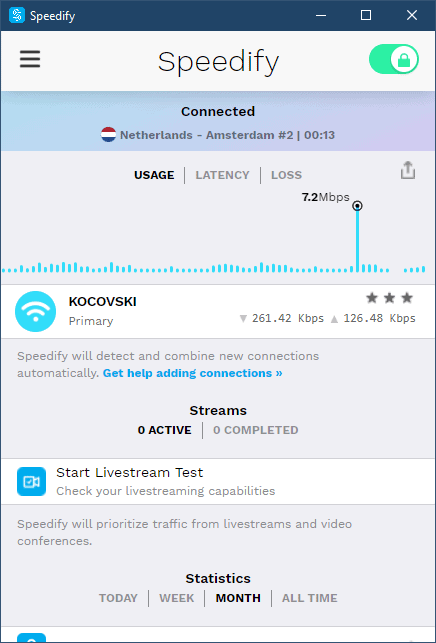
The desktop app features a cluttered home screen with a wealth of information, including pretty useless things like usage statistics and news from the development blog. To connect, you can click on the inconspicuous connection toggle in the top-right corner, or the gray bar that says “disconnected.”
Doing this will automatically connect you to the nearest server. This will bring up other data on the screen, including information about the server you’re connected to and even more usage statistics. To change servers, you need to click on the bar that now reads “connected” and shows the server location.
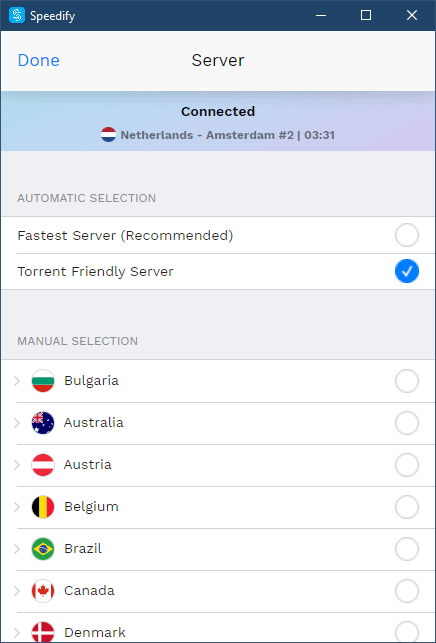
The server list has no search function, and British users in particular might be confused about why their country is listed under “G” for Great Britain instead of “U” for “United Kingdom.” The lack of search makes it a bit harder to navigate the list, but thankfully the list is diminutive, with only 47 countries available.
The hamburger icon in the top-left corner brings up a scrollable “settings” menu, which houses every setting in one place, logically grouped by function. The app also has a dark mode, though it’s not very well implemented. Some text still appears black on a dark background, making it difficult to read.
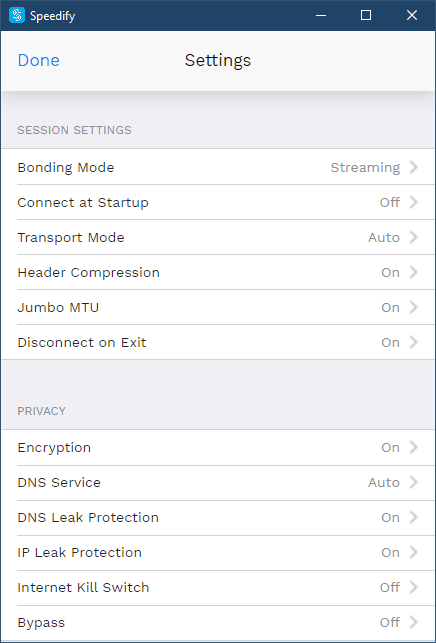
Speedify Mobile App
Apart from the app-level split tunneling feature, Speedify’s mobile app is identical to its desktop counterpart. There really isn’t much to say, other than it works just as well as the desktop app, though it takes a few steps to actually switch the app off. You need to leave the app, then tap the persistent notification telling you your connection status and click “exit.”
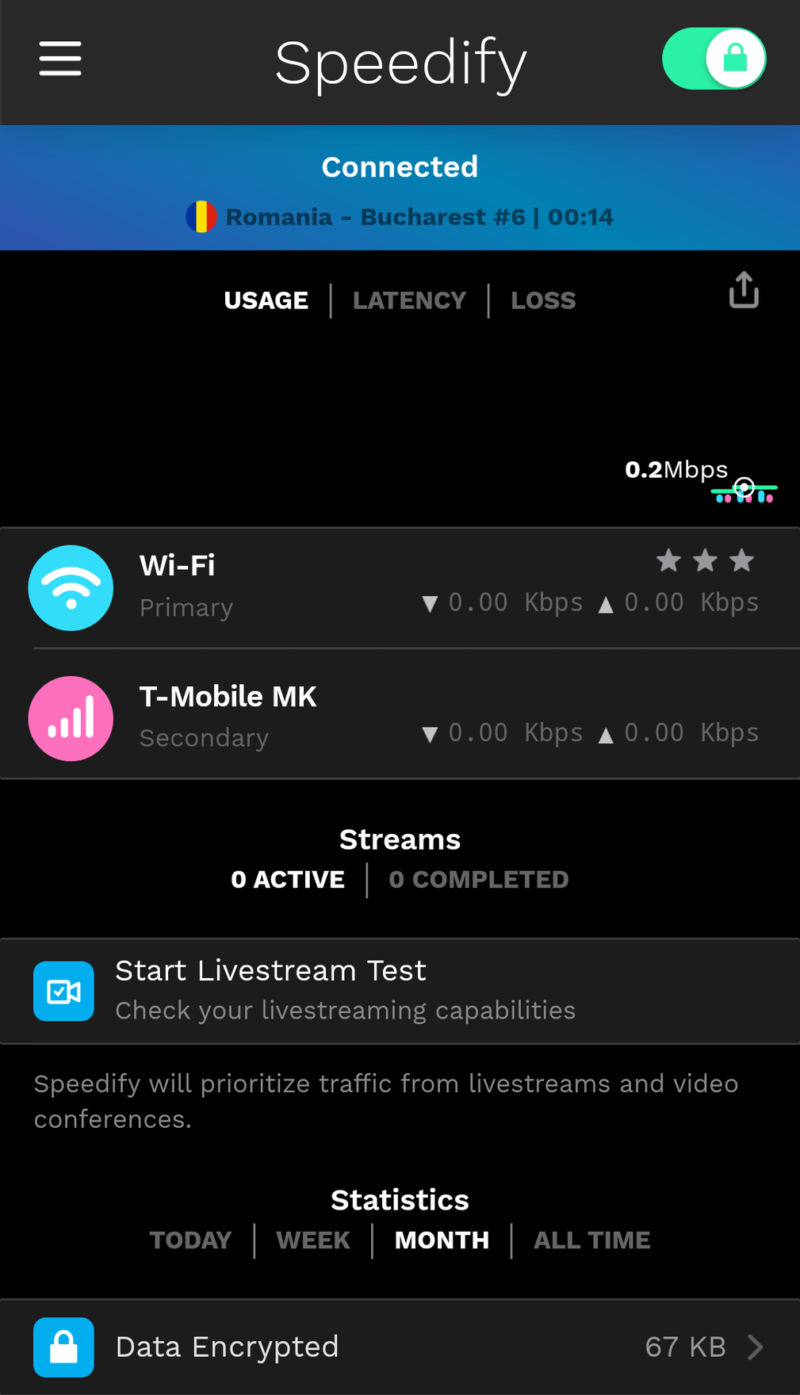
Speed
As its name suggests, Speedify is fast. We run automated tests daily on multiple top VPN providers and our results show that Speedify is indeed one of the fastest VPN providers — at least for the U.S.
To test VPN speeds, we run automated speed tests using a virtual remote desktop. Our internet connection is capped at 100 Mbps for downloads and 10 Mbps for uploads, which we believe is representative of the average internet connection in the U.S.
| Server Location | Download Mbps (Higher is better) | Upload Mbps (Higher is better) | Latency ms (Lower is better) | |
|---|---|---|---|---|
| Worldwide | ||||
| US | ||||
| United Kingdom | ||||
| Australia | ||||
| Brazil | ||||
| South Africa | ||||
| Singapore | ||||
Source: Cloudwards VPN Speed Test. We test daily. Data averaged from 12/21/23 to 01/04/24 | ||||
The line graphs below represent Speedify’s speed performance over time when connected to OpenVPN. The bar charts farther down represent a 30-day average of the VPNs’ performance.
The results represent data from our U.S. and worldwide testing, but you can tinker with the settings to display results from any specific test region. You can also disable or enable competitors for a clearer overview.
Speedify Speed Test Results
Speedify regularly tops our U.S. charts for upload and download speed. Its impact on latency (or ping) is likewise minimal. At least, that’s the story in our U.S.-based testing, as you can see in the graph above.
In our worldwide testing, servers further from the U.S. earned low scores, especially the Singapore, South Africa and Australia servers. The U.K. server was the only other server that had modest speeds and latency results.
Speedify Speed Comparison (U.S.)
Compared to the competition, Speedify’s U.S. performance is truly remarkable. It’s a breath faster than other top VPNs, including NordVPN and ExpressVPN in download and upload speeds, and it has lower latency, to boot.
Speedify Speed Comparison (Worldwide)
Things get much more interesting — and less impressive — when you start comparing its worldwide performance to the top VPNs. Its worldwide upload speeds are particularly low, providing half the performance of an unprotected internet connection.
It’s obvious that Speedify is a VPN service that is focused on the U.S. and not much else. If you want to use a fast VPN for U.S. servers, Speedify is a decent option (as long as you aren’t torrenting, which requires stronger security and privacy measures).
However, if you want to access servers anywhere else in the world, Speedify’s performance doesn’t look quite as spectacular — you’d be better off with a more consistently fast VPN, like NordVPN.
Security
Surprisingly for a VPN, security isn’t at the top of Speedify’s priority list. We have yet to meet a service that allows you to completely disable encryption for the sake of speed, apart from Speedify. The fact that you have the option at your fingertips to essentially turn the VPN into a proxy is enough for Speedify to get a failing grade from us.
As we mentioned before, this option practically begs unwitting users to browse the web unsecured, while thinking they’re protected by a VPN.
Encryption & VPN Protocols
Moving past that, on the technical side of things, Speedify uses AES-128 encryption by default, though it switches to ChaCha on older devices that don’t support AES. Both encryption methods are secure and virtually uncrackable.
In terms of VPN protocols, it eschews tried-and-tested options like OpenVPN and WireGuard, and uses its own custom Speedify protocol instead. You can use Speedify’s custom protocol over UDP, TCP or HTTPS.
Unfortunately, the protocol isn’t open source and can’t be audited by the public, which is why we’re always wary of proprietary VPN protocols — especially when they’re made by a company that lets you completely shut off encryption.
Our wariness proved to be warranted in our latest security test, where we use a packet inspector (WireShark) to sniff for leaks. Unfortunately, Speedify revealed our DNS requests at several points during our testing, and it failed to encrypt a significant portion of our traffic.
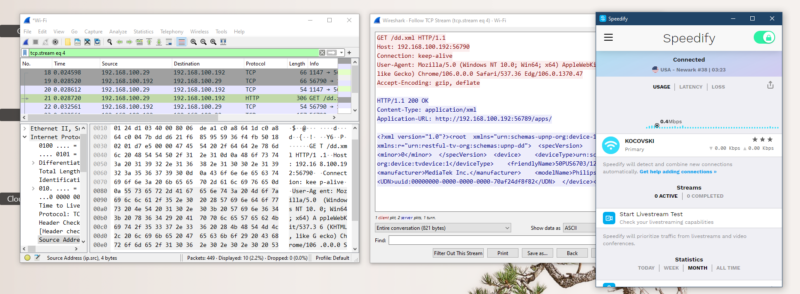
Privacy
Speedify claims to be a no-logs VPN. This claim should, in theory, mean that it keeps no logs of your VPN-protected activity, including your IP address, the websites you visit or the DNS requests your device makes.
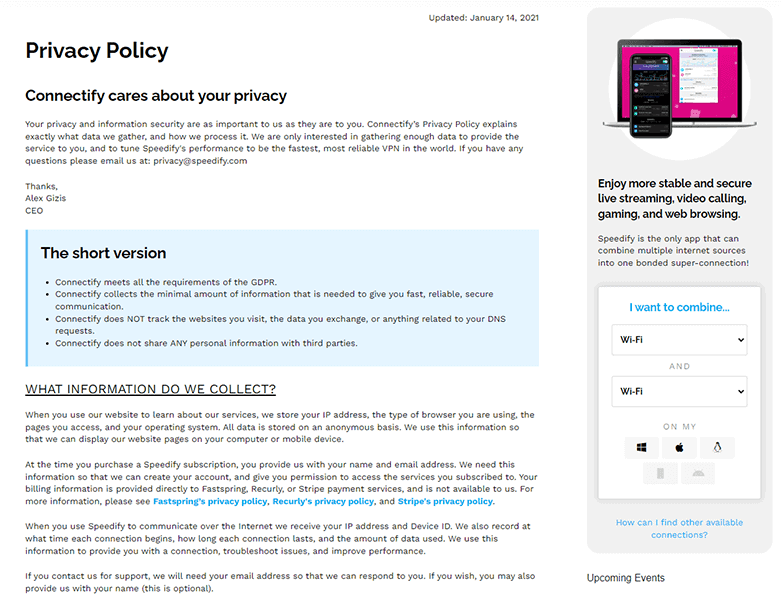
Unfortunately, Speedify’s privacy policy debunks this claim. To quote, the policy states that “When you use Speedify to communicate over the Internet we receive your IP address and device ID. We also record at what time each connection begins, how long each connection lasts and the amount of data used.”
This by itself is a massive amount of logged data. That’s without considering everything Speedify monitors when you use its website, which includes your IP address, the type of browser you’re using and your operating system. You basically need another VPN just to access Speedify’s website privately.
Speedify claims to use all of this data to provide its service. However, if you compare its privacy policy to that of Windscribe, another VPN with a free option, you’ll find a VPN that collects way less information on the user — and deletes most of the rest of the data immediately after the session.
To add to this, Speedify is incorporated in the U.S., which has almost no data privacy laws, and can monitor its citizens and businesses via surveillance acts like the Freedom Act and the Patriot Act.
Streaming Performance
Speedify claims that it can’t unblock any streaming platforms, and we don’t find that surprising, considering its small pool of IP addresses. However, we found that claim to be somewhat untrue, as Speedify was able to unblock Netflix U.S. and Max.
Though Speedify got us into Netflix, we weren’t so lucky with other streaming services. BBC iPlayer, Disney Plus, Hulu and Amazon Prime Video all detected our VPN use and blocked us from entering. It’s safe to say Speedify won’t be making our best streaming VPN list any time soon.
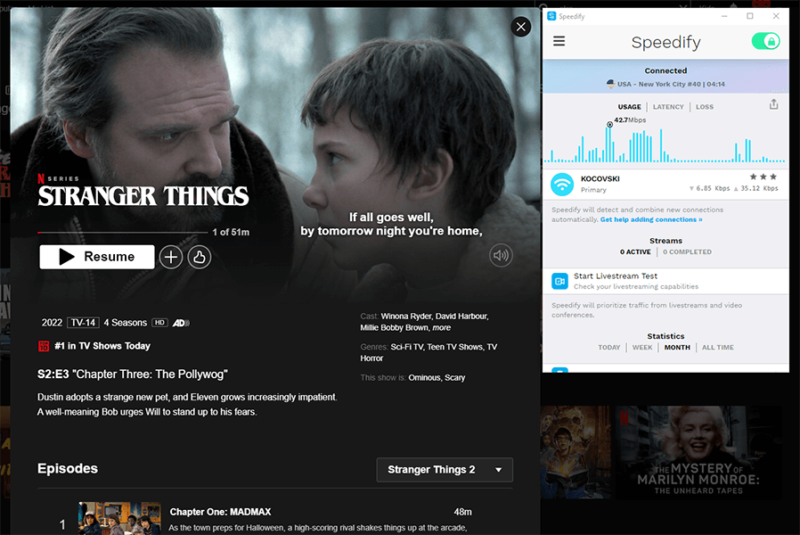
On the bright side, Speedify is still a very fast VPN, and we were able to stream an entire episode of Stranger Things in full HD with no lag or buffering. It’s also continually updating its servers to provide more stable connections, so it may become a better choice for streaming in the future.
Server Locations
Speedify offers 59 server locations spread across 47 countries, and customer support confirmed that all of the servers — ALL — are virtual servers.
Most VPNs have some number of virtual servers to help users get IP addresses in countries where physical servers could be dangerous, or when VPNs want to inflate the number of server locations available to attract more users. However, having all virtual servers is unusual, to say the least.
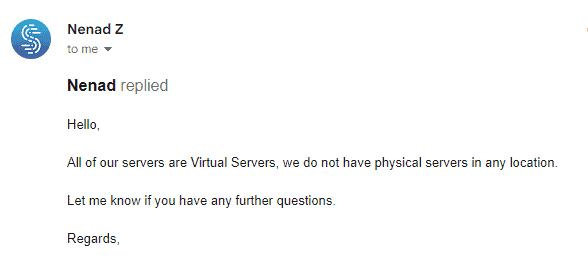
Most countries have one server location, and multiple individual servers within that location. The United States has the best coverage, with 12 server locations. Russia, Italy, Germany, India, Canada, Belgium, Austria and Australia each get two locations.
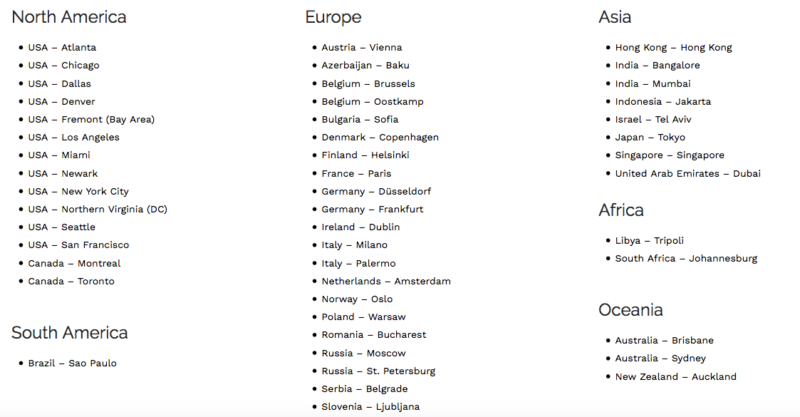
Considering the small number of server locations, Speedify’s global coverage is commendable. Europe is spoiled for choice, as is North America (though most servers there are in the U.S.), but frequently underserved locations haven’t been left by the wayside, either.
There are two server locations in the Middle East (three, if you count Turkey), there’s a server in South Africa, covering an oft-neglected continent, and a Brazil server location covers South America. East and Southeast Asia are well covered, although Central Asia lacks any nearby servers. Oceania gets three server locations, including one in New Zealand.
Torrent-Friendly Servers
Like the VPNs on our torrenting VPN list, Speedify offers special “torrent-friendly” server locations. However, they are all located in Amsterdam, so they won’t perform as well if you’re not in Europe. There are no dedicated server locations for streaming, though.
Customer Service
Speedify offers scant support for its users. There’s a knowledgebase with entries that explain Speedify’s features. However, the entries have an annoying habit of advertising the features they’re talking about, though they’re informative once you finally get to the content. The knowledgebase also features images and videos, which do make it more useful.
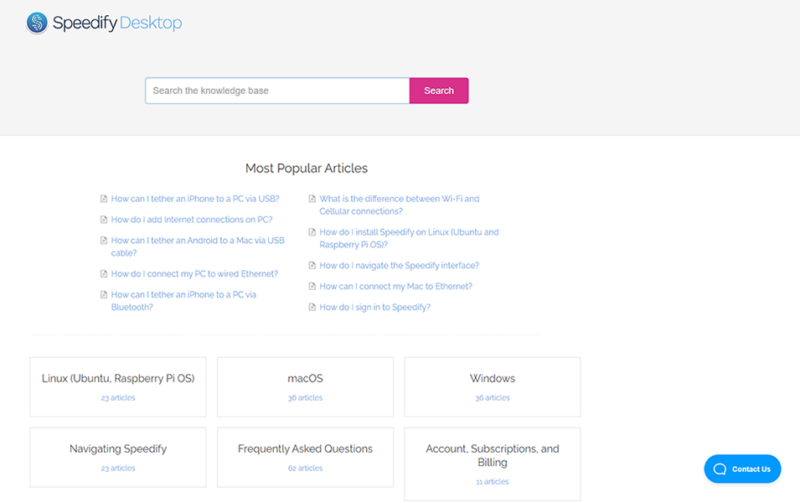
However, there’s no live chat, and you have to use a ticketing system to reach a support agent. During our testing, we got an answer within two hours, but the response was less than helpful.
We had asked an exceedingly simple question: Which servers are unavailable to free users? but the agent just told us to check for ourselves in the app. This is the equivalent of signing up for a tightrope class and the instructor saying, “Well, there’s your rope, there’s the safety net, you’re on your own.” We didn’t get a response to our follow-up question.
The Verdict: Speedify VPN Review
We’ve reached the end of this Speedify VPN review. Speedify is certainly a unique VPN, and it’s definitely fast, but its lax security and privacy coupled with its unreliable streaming capability make it difficult for us to recommend.
Even if you’re looking for a free service, you’ll be better off going with Windscribe — the best Speedify alternative (read our Windscribe review) or another VPN on our best free VPN list.
Its unique channel bonding technology might help out a would-be livestreamer with an unreliable internet connection by letting them stream over multiple simultaneous connections. This seems to be Speedify’s main selling point, so you might find it useful if you need a VPN to livestream or make video calls. Then again, would you ever want to use an insecure VPN?
What are your thoughts on Speedify? Are you impressed by its innovative tech, or do you think it’s all smoke and mirrors? Leave your personal Speedify reviews in the comments below, and as always, thank you for reading.
FAQ
Speedify is a legitimate VPN, although it’s not a very good one except for speed. It lacks many of the features you expect to see in a decent VPN, and its security is lacking.
Speedify is not safe, as it leaked our DNS requests during our testing. Thus, we can’t vouch for the security of its custom VPN protocol.
Speedify isn’t a very good VPN, because it can’t unblock most streaming websites and it collects a lot of data about your usage.
Speedify is the fastest VPN for the U.S., though we still wouldn’t recommend it over a fast and secure service like NordVPN.


